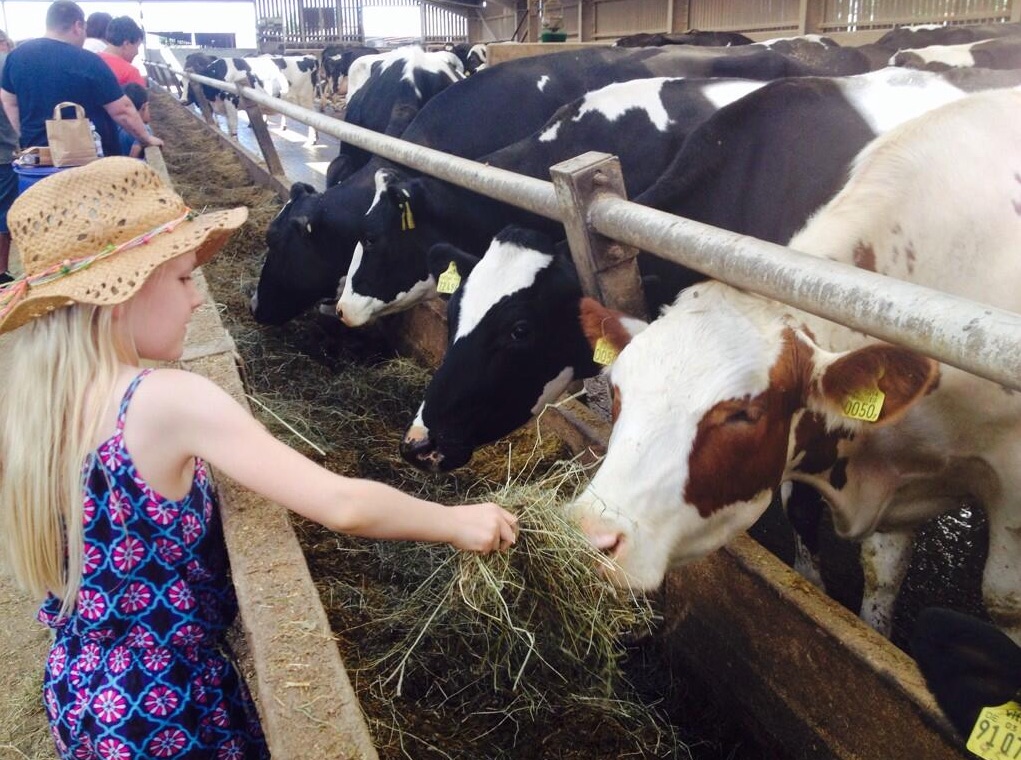When Norman Borlaug died five years ago, he uttered his famous last words: “Take it to the farmers.”
That’s good advice, but I’ve spent a lot of my time doing the opposite: Taking what farmers know and bringing it to the broader public.
Today we face a crisis in agriculture. Too many of the people who rely on what we produce have no understanding of what we do. In my home, the United Kingdom, the average person is five generations removed from the land—more than any society in the world. The United States, Canada, and other countries aren’t far behind.
In one sense, this is a heartening development. It means that farmers have become so good at supplying food that millions of others don’t have to worry about it. They can enjoy the freedom to devote themselves to their families and careers.
Yet our success comes with a cost. As people have fallen away from farming, they’ve become vulnerable to prejudiced and misinformed opinions about agriculture. This has led to a dire situation in which non-farmers increasingly try to tell farmers how to farm. The controversy manifests itself in dozens of ways, from debates over GM crops and product labeling to rules governing crop-protection tools and fertilizer.
Too often, emotion trumps science and the sad result is harmful public policy. If we’re going to feed 9 billion people by 2050, we must confront this problem.
My earliest memories are of sitting on the mudguard of a tractor with my father. But even so, it is not hard for me to enter the mindset of people who know little about agriculture. As a young man, I worked in the commodity markets in the City of London. Every day, I rubbed shoulders with people whose views of farming were shaped by a poorly informed media and outdated textbooks that portrayed the antiquated practices of the 1960s as though they were modern.
The dilemma has grown even worse in recent years, with the rise of trendy cooking shows. In the UK, these shows dominate the television channels and they’ve hijacked our image. Between the programming and the advertising, they’ve reinforced a stereotype about farmers as unintelligent country bumpkins who wear straw hats and carry pitchforks. The reality is that we’re innovators who use 21st-century science, precision technology, and the principles of environmental sustainability to grow more food on less land than ever before
Observing all of this, I came to feel like a brother protecting his sister at a party, and concluded that farming needs a defender.
As every sports fan knows, however, sometimes the best defense is a good offense.
In 2006, I founded Open Farm Sunday. This national event in the UK takes place on the second Sunday in June. Hundreds of farmers and thousands of volunteers have welcomed more than 1.5 million visitors to working farms, allowing people to learn about our practices.
Open Farm Sunday shows that we’re proud of what we do and have nothing to hide. It also creates opportunities for the media to tell positive stories about who we are. We view it as an unqualified success—and it grows in attendance every year.
A related project of mine concentrates on drawing scientists out of their laboratories and onto our farms. It is vital that they can visualize their upstream research in its applied form. It lets farmers and scientists share stories and describe challenges, extending the work of Norman Borlaug. When we picture Borlaug, after all, we don’t see an image of a researcher in a white coat hunched over a microscope, but rather a man in a wheat field with his shirtsleeves rolled up working beside the farmer.
Ultimately, we must win the hearts and minds of young people. On our farm, we’ve established The Farmschool, which hosts two or three school groups each week, allowing us to share favorable stories about farming and demonstrate in an interactive way the relationship between science, nature and the food we eat through hands-on workshops on the farm and in a working kitchen. We’re also working to improve school curricula so that children received a balanced, considered, and evidence-based education about food production.
We hope that these boys and girls will go on to become informed consumers who have a healthy understanding of agricultural realities. At the same time, we must persuade many of them to do more: In the UK, we need about 75,000 new people to fill vacant positions in the diverse and dynamic farming and food supply sector over the next six to eight years.
The best way to encourage careers in agriculture is to excite the imaginations of young people, persuading them that farming is an innovative field full of technology and promise. So in the last three years, we’ve launched Bright Crop, a cross-industry initiative to promote opportunities in farming and food supply among adolescents.
We’ll never solve all of our problems. Without initiatives such as these, however, I can guarantee that our problems will grow worse.
The time has come for us farmers to take it to the public.
Ian Pigott runs a diversified farming business in Harpenden, UK. Located just 20 miles from the centre of London, he grows wheat, oilseed, rape and oats in rotation. The farm is a LEAF (linking environment and farming) demonstration farm. Ian is the 2014 recipient of the Kleckner Trade & Technology Advancement Award and is a member of the TATT Global Farmer Network (www.truthabouttrade.org).
Follow us: @TruthAboutTrade on Twitter | Truth About Trade & Technology on Facebook.

